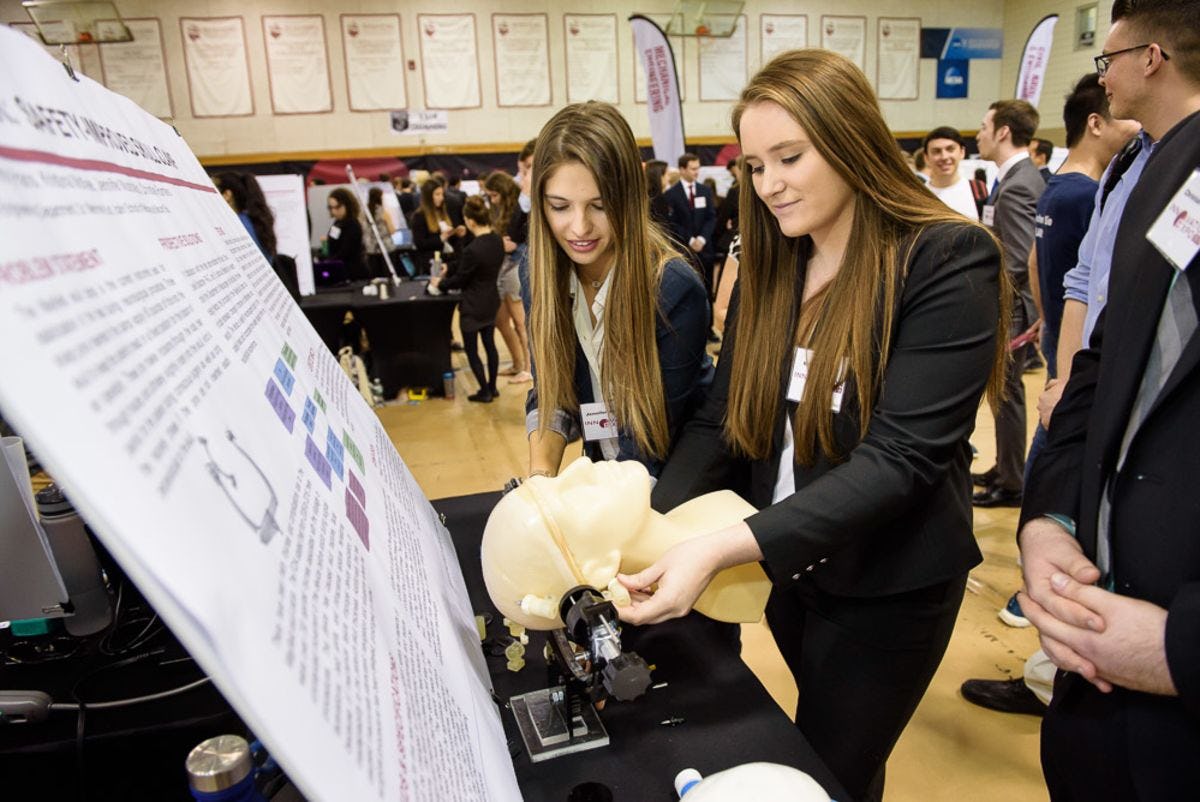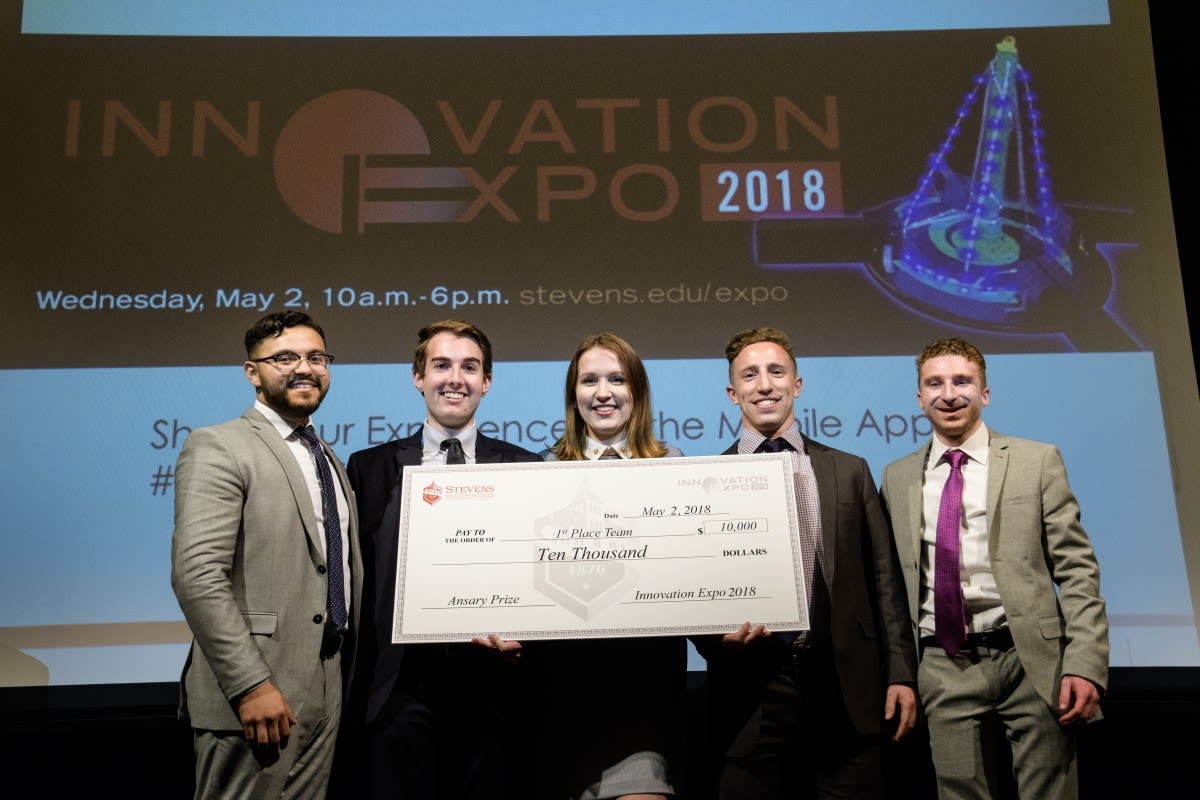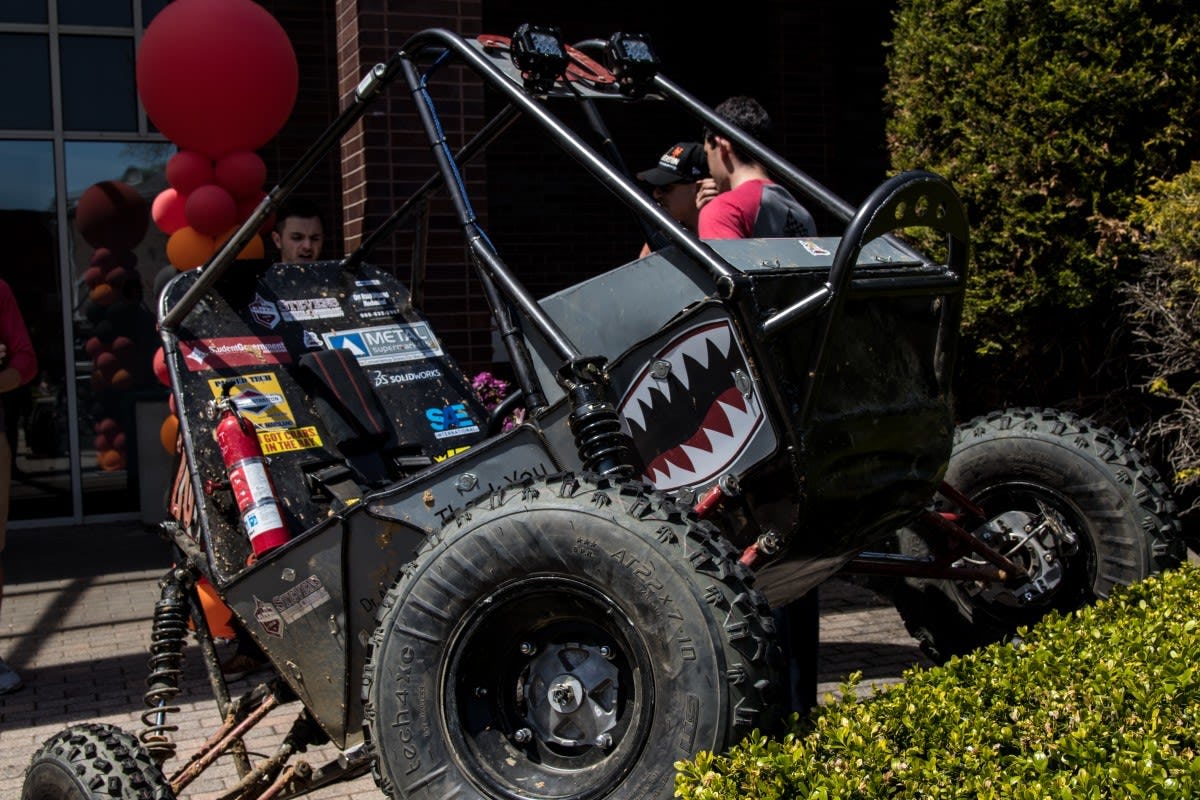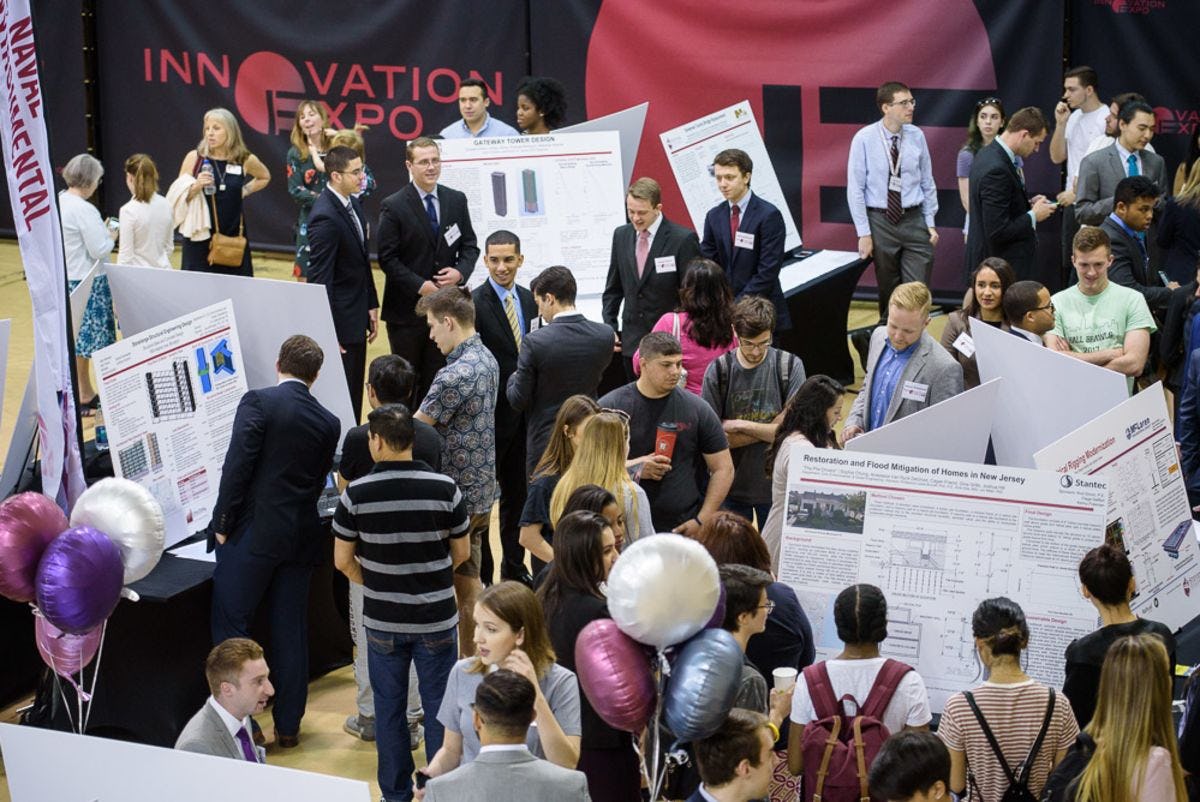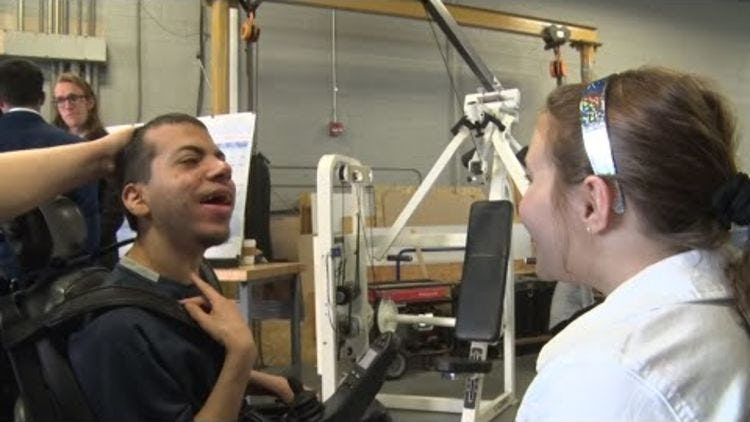Student and Faculty Inventions on Display at Stevens Innovation Expo 2018 Show What is Possible
From a solar-powered boating system and a hydrogen fuel cell car to a cryptocurrency exchange and an e-commerce sales forecasting platform, this year’s Innovation Expo at Stevens Institute of Technology showcased the breadth of innovative research, educational achievements and entrepreneurship taking place at the 148-year-old university founded by America’s first family of inventors.
At multiple venues spread across Stevens’ 55-acre hilltop campus on the Hudson River, scores of visitors actively engaged with Stevens students to learn more about their senior design projects, the capstone of the Stevens undergraduate experience and the culmination of an education focused on problem-solving, multi-disciplinary thinking and teamwork.
“We utilized everything that we learned over the years. All the classes that we’ve taken went into our senior design. So it was really satisfying to see it all come together and represented in this one project,” said David Schulz, one of the chemical engineering seniors behind InnoVax, an egg-free method for producing flu vaccines.
The capstone senior design experience was a revelation for some, including mechanical engineering senior Nicholas Rhein, co-creator of SafeCycle, a panoramic mirror system that provides increased spatial awareness in order to make cycling safer.
“I’ve had experience with consumer product development at places that I’ve worked, but to actually implement something that was my own design rather than someone else’s gave me a creative freedom that I’ve never had before,” he said.
In addition to displays of senior design projects, the campus-wide, day-long celebration featured elevator pitch competitions, tours, guest speakers, a research poster session and reception.
And the winner is …
Persuading prospective investors to help turn senior design projects into effective businesses is the crux of the crowd-pleasing elevator pitch competition, which undoubtedly produced the most raucous moments of the day. A packed audience at Stevens’ DeBaun Auditorium loudly cheered on ten student teams competing for cash prizes totaling $17,500 (first place: $10,000, second: $5,000, and third: $2,500), made possible by the generosity of the Ansary Foundation.
Last year’s winner CerebroSense, a touchless brain monitoring device, went on to become the People’s Choice Award winner at the 2017 Collegiate Inventors Competition, which honors the nation’s top collegiate inventors.
This year a distinguished panel of business, academic and community leaders, including Hoboken’s new mayor Ravi Bhalla, awarded first-place to the team behind OrthoInsight, a first of its kind sensor-enabled "smart" implant for knee joints aimed at preventing knee replacement revision surgeries. This was not the first award for team members Ted D'Amico, Ian Hipschman, John Mottole, Hashem Seli and Izabela Serowik, who were advised by Stevens professor Eirik Hole. Their device claimed the (https://www.stevens.edu/news/stevens-students-design-smart-implant-knee-joints "Stevens Students Design "Smart" Implant for Knee Joints") at the 2018 Johnson & Johnson Engineering Showcase.
The MiraView team (Francisco Charro, Seth Kirschner and Gregory Mercado; faculty advisor: James Biagi) came in second for their design of an app that promises to deliver digital therapeutics in the recovery and treatment of patients suffering from post-traumatic stress disorder (PTSD).
The third-place team of ApneAir (Alena Davis, Nicole Fosko, Zachary George and Ruth-Ann Gonzales; faculty advisor: Sally Shady) worked with clinical advisors at Hackensack University Medical Center to develop a system of sensors that could monitor the nasal airflow in premature infants, potentially saving the lives of newborns.
Hoboken-based entrepreneur Aaron Price, who performed moderating duties for the fifth consecutive year, had high praise for all the competing teams, whose three-minute presentations were scored on two metrics — presentation and feasibility.
“I’ve seen thousands of pitches and given dozens myself. It’s a very nerve-racking thing to do. These guys all crushed it.”
Speakers share insights on creating a research ecosystem and new enterprises
Research and innovation that address society’s most pressing problems was the subject of a compelling lecture, titled "The Collaboratories for the Digital Future," by Dr. Albert P. Pisano, dean of the Jacobs School of Engineering at the University of California, San Diego.
Pisano said his school’s mantra that “great engineering schools of the next decade will collaborate their way to relevance” serves as the driving force behind creating ground-breaking collaborative research spaces, dubbed “collaboratories,” where teams of engineers and scientists focus on four collaborative themes: sustainable energy and new materials, precision health and wellness, secure networks and systems, and sentient analytics systems.
Retired investment banker and venture capital executive John Nehra was the featured speaker of the Thomas H. Scholl Lecture by Visiting Entrepreneurs, which is supported by a gift from Scholl, a Stevens Board of Trustees member and a highly successful entrepreneur.
For more than 40 years, Nehra worked with entrepreneurs developing new technologies and services in healthcare and technology and has helped create billion dollar companies multiple times. He shared a venture capitalist’s perspective on creating companies and spoke about what he learned overseeing medical technology incubators.
"Once again, the annual Innovation Expo showcased some of the very finest student research produced at Stevens," said Vice Provost for Research, Innovation and Entrepreneurship Mo Dehghani, "including remarkable technology innovations in a range of disciplines such as medicine, artificial intelligence, data science and sustainability. We also enjoyed a variety of entrepreneurial business projects, innovative engineering designs, space projects, biology and chemistry research projects and other work.
"This is a proud Stevens tradition that remains a captivating event, and I encourage everyone to revisit to learn about how our students prepare to solve tomorrow's challenges today."
To learn more about the projects from the 2018 Stevens Innovation Expo or become involved in supporting next year’s Expo, visit stevens.edu/expo.

